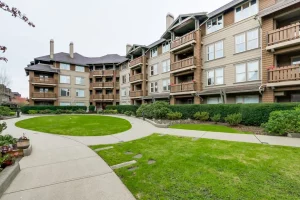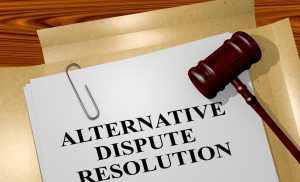I often get asked whether the trustees are entitled to disconnect an owner’s body corporate electricity in circumstances where their levies are in arrears. On the Sectional Title Living in SA Facebook page a member asked the following:
“I would like to find out how you will handle a situation where the member is in arrears levies and electricity. I know the municipality can disconnect the electricity, but can the Body Corporate do it?”
In short, the answer to this question is that the trustees cannot disconnect electricity supplies without either a statutory right to do so, or an order of the court authorising the disconnection of the electricity.
The act of “taking the law into your own hands” in an attempt to force owners to pay outstanding levies is referred to as an act of spoliation and is illegal.
What does the law say on Body Corporate electricity?
The illegal disconnection of electricity to a unit by a body corporate was dealt with in the High Court in the case of Queensgate Body Corporate v Claesen (A3076_98) [1998] ZAGPHC 1 (26 November 1998). The court confirmed the scope of spoliation as was summarised in Nino Bonino v De Lange 1906 TS 120 at 122 where Innes, CJ said:
“It is a fundamental principle that no man is allowed to take the law into his own hands. No one is permitted to dispossess another forcibly or wrongfully and against his consent of the possession of property whether movable or immovable. If he does so the court will summarily restore the status quo ante and will do that as a preliminary to any inquiry or investigation into the merits of the dispute. It is not necessary to refer to any authority upon a principle so clear.”
In this case, the body corporate’s counsel argued that the Act was taken in accordance with the scheme’s rules, duly made under the Sectional Titles Act 95 of 1986. This argument was held to be without merit. The court said:
“The clause giving the appellant the right to cut off the electricity of any unit owner who is in arrears with his or her levies is clearly contrary to the common law. It constitutes nothing but the power to interfere with such a person’s right to use the existing electricity supply. The instant case is a fortiori example of spoliation. … no court would have had the power to deprive any holder of his or her electricity supply in the circumstances the appellant has done. It is a clear act of spoliation and there was no consent valid in law to such an act.”
The Community Schemes Ombud Service (the “CSOS”) have also held that trustees in sectional title schemes do not have the legal right to terminate or reduce electricity services because an owner is in arrears with their levies.
What does the legislation say?
Previously the Electricity Act 41 of 1987 section 27(3) made it an offence for any person without legal right to cut off or damage or interfere with any apparatus for generating, transmitting, or supplying electricity. The offender would be liable for a fine and/or imprisonment. This Act was repealed and replaced by the Electricity Regulation Act 4 of 2006, which sets out in section 22 (which deals with the powers and duties of a licensee) that only the holder of a license, granted by the Regulator, may disconnect an electricity supply subject to the conditions set out in section 22(5). In terms of section 15(1)(n) and section 22(5) of the Act, only a “licensee” may disconnect someone’s electricity for non-payment.
Therefore, bulk suppliers of the electricity such as Eskom, or a subsidiary supplier such as a local authority or City Power can disconnect the electricity supply in response to non-payment of the account and after due notice has been given. This has been held to be a legitimate act. However, a body corporate is not a “licensee,” but a “distributor” in terms of the Electricity Regulation Act, and is not entitled to cut off the supply of any service to a section when one of its members is in arrears with their levies.
The exception
The previous discussions related to circumstances where the body corporate supplies electricity to the unit owners, and pays for the electricity usage of all the owners to the bulk supplier. The body corporate then recovers the expense from each owner in accordance with their participation quota, or in accordance with the reading of a separate electricity meter installed in terms of the Prescribed Management Rule (“PMR”) 29(3). PMRs 29(4) and (5) provide for the installation of pre-payment meters for electricity and states that:
“29(4) A body corporate may on the authority of a special resolution install separate pre-payment meters on the common property to control the supply of water or electricity to a section or exclusive use area; provided that all members and occupiers of sections must be given at least 60 days notice of the proposed resolution with details of all costs associated with the installation of the pre-payment system and its estimated effect on the cost of the services over the next three years.
(5) If a pre-payment system referred to in sub-rule (4) is installed
(a) the body corporate is responsible to ensure that the system does not infringe on the constitutional rights of section occupiers to access basic services; and
(b) any member who leases a unit to a tenant is responsible to ensure that the system does not infringe the rights of the tenant in terms of the Rental Housing Act, 1999 (Act No. 50 of 1999), or any other law.”
The body corporate would not be involved in the payment for the supply of electricity in circumstances where the unit makes use of pre-payment meters for electricity. Where the owner does not purchase electricity, they will not acquire units to load onto their pre-payment meters. This simple demand-supply model simplifies collection procedures significantly for bodies corporate. Obviously, the portion attributed to common property electricity supply would still be relevant though. Nevertheless, I suggest that bodies corporate move toward a process where they attempt to obtain a special resolution for the installation of separate pre-payment electricity meters. In circumstances where the body corporate cannot obtain a special resolution, they can approach the CSOS for relief in terms of section 6(9) of the STSM Act.
What should bodies corporate do to recover arrear levies?
Sections 3(2) and (3) of the Sectional Titles Schemes Management Act 8 of 2011 (the “STSM Act”) provides the body corporate with a specific remedy for the collection of arrear levies. The body corporate can recover the levies from the owner in an application to the ombudsman in terms of section 39(1)(e) of the Community Schemes Ombud Act 9 of 2011. This is the correct procedure to follow to collect arrear levies. Bodies corporate should not wait until the arrear levy amounts become too substantial, or the body corporate will be forced to subsidise the recalcitrant owners and follow more expensive court procedures for the collection of the arrear levies such as the attachment of the property to be sold in execution.
How can bodies corporate legally disconnect an owner’s electricity?
In an article titled “Pay your arrear levies or you trustees can cut your power off with a high court order” Marina Constas, a director at BBM Law reports that several recent High Court judgments have been in favour of body corporates and managing agents seeking to disconnect the electricity supply to sectional title units where arrear levies are not being paid. In this article Constas states that:
“Based on recent judgments, the courts are not sympathetic to owners who are accumulating substantial arrear levies and electricity charges…Court action is a robust step for the trustees to take, but in the cases that my firm has recently been involved in, there have been significant amounts of money at stake…In current tough financial times, body corporates are struggling and cannot carry debts like these. If a body corporate does not recover payments, it will be forced to advance money to the Council on behalf of section owners who do not pay for electricity consumption. This is an untenable situation and trustees have a fiduciary duty to see that they collect the arrear charges…The message from the courts is clear. Trustees and managing agents do have the power to disconnect the electricity with a High Court order when a sectional title owner consistently fails to pay arrear levies – including electricity charges.”
Conclusion
Unfortunately bodies corporate persist in disconnecting (and charging re-connection fees) to owners who are in arrears with their levies because it is seen as an effective remedy. Often the owner is not in a financial position to go to court to resist the spoliation and to obtain an order to have the electricity supply immediately restored. This leaves the owner with little choice but to pay so that their electricity is reconnected. Bodies corporate are not legally entitled to disconnect an owner’s electricity without following due process by way of obtaining a court order.
Less extreme measures should first be followed. The body corporate should attempt to recover all arrear levies timeously to avoid the amounts escalating too much. Furthermore, the body corporate could opt for the installation of pre-payment meters to avoid excessive liability to bulk electricity suppliers in circumstances of arrear levies.
Written by Dr. Carryn Melissa Durham of Stratafin













